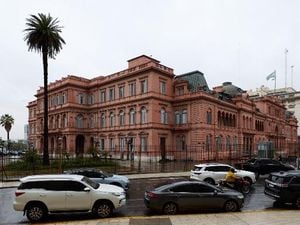On March 12, 2025, it was reported by local media, including Miyazaki Nichinichi and Kyodo News, about the distressing situation involving two faculty members from Miyazaki Sangyo Keiei University who are suing the institution. A male professor, aged 40s, and a female assistant professor, aged 30s, have turned to legal action after being allegedly notified of termination due to their workplace marriage.
The couple, having married on July 11, 2024, reported their union to the university president. Upon receiving this news, the president expressed his displeasure and informed the female assistant professor of her impending termination, projected to take place at the end of the current academic year. This dismissal was communicated officially on February 18, 2025, triggering the couple to seek legal recourse.
According to details filed at the Miyazaki District Court, the couple is not only contesting their termination but is also demanding 10 million yen (about $100,000) as compensation for the damages incurred due to this decision. Their lawsuit, filed on February 19, 2025, highlights not only the personal grievance stemming from the situation but also raises significant questions about discrimination against marital status within professional environments.
The plaintiffs, represented by their attorney, have articulated the emotional and professional toll this situation has inflicted. The female assistant professor was quoted as saying, "Why must I be deprived of my job and excluded just because I got married in the workplace?" This sentiment captures the essence of their struggle, emphasizing the unfair nature of their treatment since their marriage.
The situation took a turn for the worse for the couple, as reports indicate they were later subjected to disciplinary measures, following what they describe as their protest against the unfair actions taken against them. The professor was demoted from his position, resulting not only in reduced status but also significantly decreased salary, raising concerns about workplace ethics and the rights of employees.
On December 20, prior to filing the lawsuit, the couple received documentation outlining supposed disciplinary actions against them, citing the university's unwritten rules against “marital co-earning” due to the institution's smaller size. This assertion falls under scrutiny as the equality of treatment for faculty is questioned.
On March 12, 2025, the university responded to the lawsuit through formal channels, declaring the couple's relationship as one of inappropriate conduct leading to serious violations of the institution's policies. A spokesperson for the university stated, "It is a serious violation of regulations to bring inappropriate relationships... and disrupt the order of the school.” This stance highlights the institution's commitment to preserving order but also reveals potential biases against personal relationships entering the workplace.
The couple remains resolute and has expressed their commitment to fighting back against what they deem as discrimination based on their marriage. The first oral arguments for this case are scheduled for April 16, 2025, and it remains to be seen how this case will develop, not only for the plaintiffs but for workplace rights as they pertain to marriage.
The outcome of this case could have wider implications, affecting policies related to employee relationships at educational institutions across Japan and potentially beyond. Advocates for workplace equality are closely watching the proceedings, as the ruling could set precedence on how student-instructor relationships are navigated, as well as overarching employee rights concerning personal lives.
The legal battle has already ignited emotions across the university community, with faculty and staff rallying around the couple, questioning the ethics and motivations behind the university's actions. While the institution stands firm on its policies, the plaintiffs’ situation points toward significant challenges within the framework of human resources and workplace regulation.
Critics argue this situation reflects broader societal biases against workplace marriages and the need for transparent policies surrounding such personal matters. The case continues to draw attention as both sides prepare for the upcoming hearings, emphasizing the need for balance between institutional order and individual rights.



